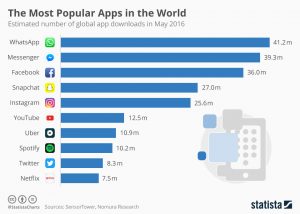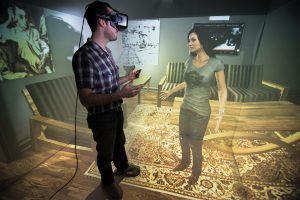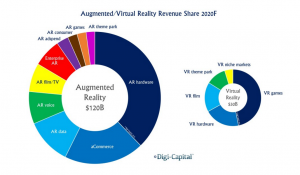How many days in a week do you leave your smartphone at home?
If you thought “Never!”, it may be worth to read this article till the end.
Do you even remember that few years ago, you didn’t possess a smartphone? And surprisingly, you survived. What happened in the meantime, so that this little object became suddenly necessary for you, and for some billions of other people?
Why have smartphones become so important in daily life?
Beyond the phone itself, enabling to call or text someone, smartphones have become necessary because of at least four features “must-have “applications can provide.
Connectivity: If I told you 10 years ago, that “with a small object located in your jean’s pocket, you could connect, chat, and share pictures and videos with anybody in the world and all this for free”, you probably would not have believed me. Yet it happened. Social media free applications like WhatsApp, Facebook, Instagram, Snapchat or Twitter have disrupted very quickly the way people interact with each other. With no surprise, they are on the top of the most used applications worldwide. Interestingly, Facebook owns four out of the five most downloaded apps ever.
Efficiency: Last generation of smartphones have become like miniature computers. That’s why many people actually use their smartphones to work on it, as it is convenient, easy and fast. Whilst you are in public transport for example, you can check your e-mails, take notes, and work collaboratively with your team on One Drive or Google Docs.
 Entertainment: Do you remember how much boring it was to wait in the doctors’ and dentists’ waiting room? Hopefully you can play mobile games now to have some fun during boring moments like that. This is called “casual gaming”. Traditional gamers used to plan their gaming session on PC or PlayStation around their daily schedule. And hardcore gamers arrange their schedules around their gaming. Most of them are men. Now, casual gamers entertain themselves with games when time presents itself. Surprisingly, the Guardian showed in September 2014 that most of casual gamers are actually women. Smartphones enables casual gamers to have a convenient access to unlimited number of “free-to-play” but “pay-to-win” games. As a result, mobile games market is worth $37 billion in 2016. This represent 37% of the global games market of $99.6 billion, and even beats the PC games industry. In this way, mobile games have revolutionized the global gaming industry.
Entertainment: Do you remember how much boring it was to wait in the doctors’ and dentists’ waiting room? Hopefully you can play mobile games now to have some fun during boring moments like that. This is called “casual gaming”. Traditional gamers used to plan their gaming session on PC or PlayStation around their daily schedule. And hardcore gamers arrange their schedules around their gaming. Most of them are men. Now, casual gamers entertain themselves with games when time presents itself. Surprisingly, the Guardian showed in September 2014 that most of casual gamers are actually women. Smartphones enables casual gamers to have a convenient access to unlimited number of “free-to-play” but “pay-to-win” games. As a result, mobile games market is worth $37 billion in 2016. This represent 37% of the global games market of $99.6 billion, and even beats the PC games industry. In this way, mobile games have revolutionized the global gaming industry.
Functionality and convenience: What can you do with a smartphone? It may be impossible to dress a complete list of all the functionalities a smartphone can give to its user. Actually, the question is more likely to be quickly answered on the other side: what very few things cannot a smartphone do?
Thus, beyond connectivity and efficiency, smartphones are bought because they are functional to do pretty much everything: capture life moments with HD camera, do online banking, find a good restaurant, book a hotel room, listen to your favorite music, watch TV shows and movies, do online shopping, get an Uber, read the news, look at the weather forecast, find the best place to park, and so on. And one of the greatest service of your smartphone ever may be that you won’t get lost anymore! Thanks, GPS functions.
For all these reasons, we should not consider our smartphone as a product, but rather like a platform of services that allows its users to do almost everything.
Smartphone, the extension of human hands?
Smartphones have become so important in daily life that some starts to consider it as vital. The modern citizen might have become dependent on smartphones, and sometimes his passion for smartphone applications leads to addiction. A recent study in UK showed that 77% of the 18- to 24-year-olds are “feeling uncomfortable after being separated from their phones for just minutes”.
The modern addiction phenomena of smartphones is real, and its symptoms are diverse: you feel stressed out, cut off or incomplete without your mobile; you compulsively check for updates, messages and battery life; you use your phone in inappropriate places; and even sleep with your smartphone. In this perspective, it seems that nowadays we cannot live without smartphones. And the getting-more-and-more-addicted-trend should not stop here. Artificial Intelligence (AI) should provide new addictive applications in the foreseeable future. As Apple’ CEO Tim Cook predicts: « AI will make this product even more essential to you ».
One of the limit is that some individuals are fed up of being so dependent on smartphones. They feel like instead of making their life more convenient, smartphone technologies enslave them. That’s why some deliberately choose to not have a smartphone anymore. Blogs of people expressing their relief and the freedom they feel after putting away their smartphone are abundant.

Are we moving towards the end of smartphones?
Probably. But not for the reason just mentioned above. Futurist Robert Scoble explains in his famous blog Scobleizer, “why Tim Cook better worry”.
He reminds us that the user interface went through three revolutions:
- The first was character mode. MS-DOS.
- The second was the GUI, graphical user interface. Macintosh and Windows.
- The third was touch. iPhone and Android.
And right now, a fourth revolution is going on, and will disrupt all tech industries. It’s called spatial computing.
What is that? Spatial Computing is a “set of ideas and technologies that will transform our lives by understanding the physical world, knowing and communicating our relation to places in that world, and navigating through those places. The transformational potential of Spatial Computing is evident.”
Virtual reality (VR) and augmented reality (AR) already represent a $1 billion market. And the Magic Leap, the Google Glass, Oculus (Facebook), and HoloLens (Microsoft) is just the very beginning.
VR & AR represents much more than just headset manufacturers and mass market content producers.
 An entire ecosystem of innovative start-ups is growing-up, and Market analysis Digi-Capital projects that their revenues could hit $120 billion by 2020. These technologies could provide consumers innovative ways of interacting with each other, in a more realistic and entertaining manner than smartphones do. Do you remember the four key benefits of smartphones we just talked about? Just imagine how much connecting with your friends in a virtual world or augmented reality games could outcompete them.
An entire ecosystem of innovative start-ups is growing-up, and Market analysis Digi-Capital projects that their revenues could hit $120 billion by 2020. These technologies could provide consumers innovative ways of interacting with each other, in a more realistic and entertaining manner than smartphones do. Do you remember the four key benefits of smartphones we just talked about? Just imagine how much connecting with your friends in a virtual world or augmented reality games could outcompete them.
In the long-term, our mindset cannot even imagine how far the potential of VR, AR, and spatial computing could go. For example, it could disrupt higher education or traditional training programs, with courses and demos available directly in your glasses.
So, can we live without smartphones?
Yes. Before smartphones existed, we did. And it was just fine. Now they are out there, it would be a shame to not benefit from the great features they offer. The smartphone by itself is just a tool, a platform of services. However, universal human needs, like the social need of connecting with each other, remain the same by all times. In that way, social media technologies proved to be very useful. And smartphones replaced landline phones. But soon enough, a new technology like augmented reality could better respond to these secular needs, and replace smartphones.
Until then, rather than asking if we can live with or without smartphones, the challenge is probably more: how to live with it?
It’s true some of us might get a bit addicted to their smartphone, and the best solution is certainly not to definitely avoid this useful technology. We should rather decide to use our smartphone when we want to, and not the opposite. Disactivating instant notifications on social media applications for example could release us from the permanent flux of news. Former Google’ engineer and Stanford’ Alumni created the label Time well spent, which is a movement to align technology with our humanity. As today apps compete in a race to grab our attention, the movement rethink ways to:
- Live better with more empowering settings for our media and devices.
- Change incentives so media competes to improve our lives, not get eyeballs.
- Invent new interfaces that help us to make room for what matters.
In the end, it’s a lifestyle choice. And giant tech players have the responsibility to decide how they will design futures technologies, and what would be the final goal for billions of consumers. When it comes about ethics and technology, we could end by quoting Nikki Silvestri: “we need innovation following values, instead of value following innovations.”



Yeah i do not think so we can live without smartphone in the digital world
You wrote this blog very well. Very knowledgeable. Thanks for sharing this
Acres 99 is an online platform where you can find all its services such as Real estate property for sale, rental and leasing. We are specialized in connecting agents, tenants, buyers and sellers from all across India. We aim to eliminate transaction cost by integrating verified buyers, sellers, facilitate customised solutions and provide 100% customer support.
Skills To Learn